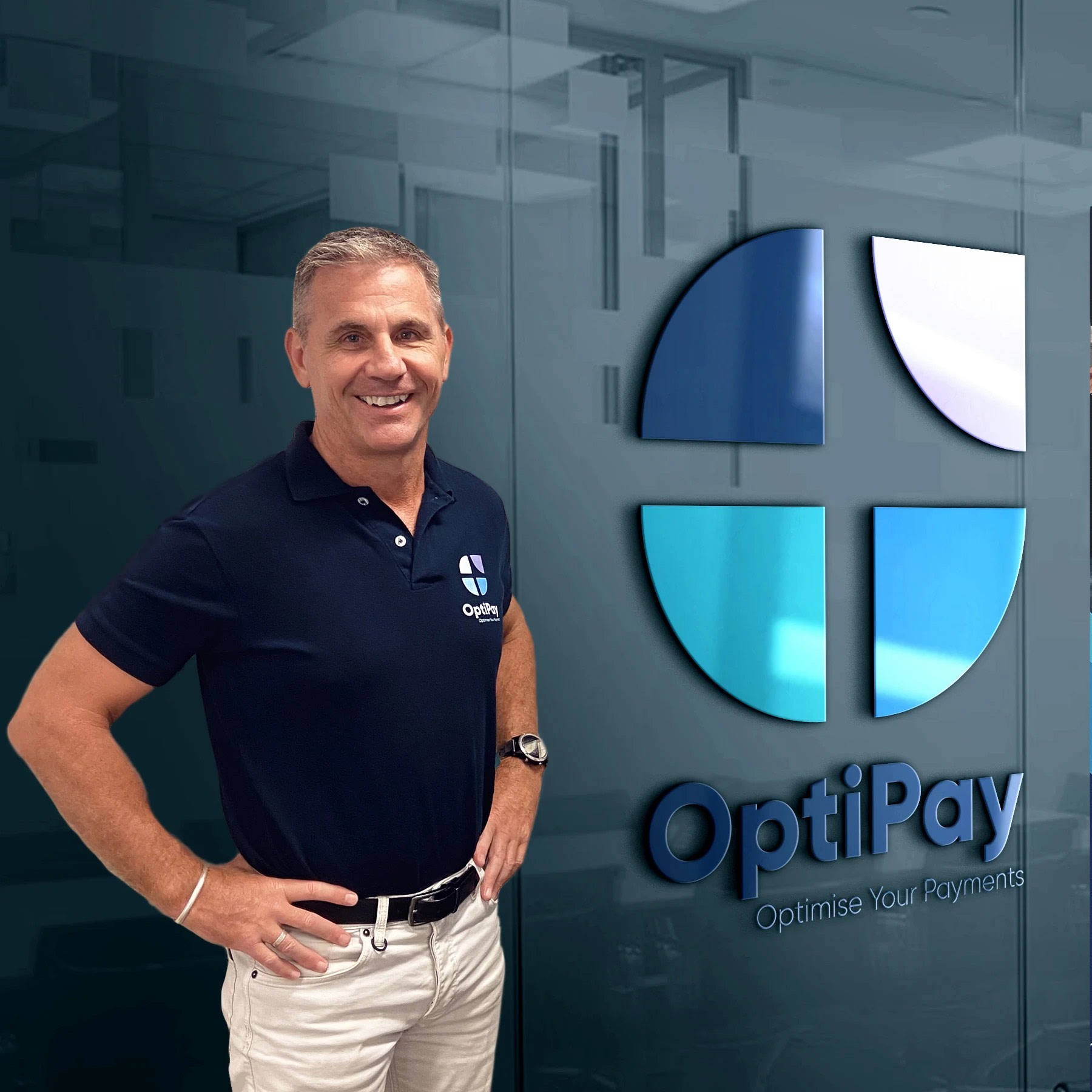
By:

The world of finance is ever-evolving, and for small to medium businesses, navigating this landscape can be both challenging and rewarding. The Accountants Daily Insider podcast recently offered a glimpse into this intriguing world through an engaging conversation with Angus Sedgwick, the CEO of OptiPay, a company firmly entrenched in providing innovative cashflow solutions to Australian businesses.
Hosted by Imogen Wilson, this episode delved deep into the nuances of alternative financing and its critical role in empowering accountants to drive SME growth.
The air was alive with anticipation as Angus Sedgwick took his place in the studio, bringing with him a wealth of experience and insights. Sedgwick’s journey is as fascinating as it is instructive, having transitioned from the world of life insurance to the intricate domain of invoice financing. His story is one of vision and transformation, having identified an opportunity early on in the invoice financing space and capitalising on it to build one of the leading players in the market.
OptiPay stands as a testament to Sedgwick’s foresight and adaptability, providing essential cashflow funding solutions that have become vital lifelines for businesses, especially in a tough economic climate. This episode not only explored these solutions but also sought to equip accountants with the tools and partnerships necessary to support SME clients in scaling sustainably, all while positioning themselves as value-adding advisors rather than mere compliance checkers.
Throughout the conversation, Sedgwick shared anecdotes from his career, offering listeners a unique perspective on the financial services industry and its evolving dynamics. He discussed the challenges and triumphs faced by OptiPay and its clients, painting a vivid picture of the current state of the market and the opportunities that lie ahead for those willing to embrace alternative financing.

Angus Sedgwick
Chief Executive of OptiPay
Business is great. As OptiPay is a provider of cashflow funding solutions for Australian businesses, we’re in a very much a growth cycle or growth phase of our business. It’s been an interesting year, a pretty tough economic climate, which ironically makes it a fruitful time for cash flow funding businesses. Banks aren’t necessarily always there for small to medium-sized businesses without a lot of collateral that they can offer. And that’s where non-bank or alternative funders like OptiPay can really help.
Invoice financing is a form of cash flow funding that allows a business to gain access to the cash for invoices they’ve raised and issued to their debtors or customers against goods or services that they have delivered to their customers but not yet been paid. It monetizes that asset. So at the moment, without invoice financing that asset’s on the balance sheet depreciates in value just because the time value of money.
OptiPay’s funding solutions are for Australian businesses selling goods and/or services to both Australian and International business customers on credit terms i.e. deliver the goods and get paid 30, 60 or 90 days later. OptiPay solutions are not suited for businesses providing B2C transactions, but typically with a B2C transaction there is no credit period anyway because the business is getting paid cash on delivery or cash prior to delivery. So any industry is suitable as long as they’re B2B. But there are certain industries that are more predisposed to using invoice finance because they’ve got longer credit terms just by the nature of the industry, such as labour-hire companies, manufacturers and wholesale/distribution.
The role of the accountant is critical. Many business owners might not fully understand the difference between profit and cash flow. Accountants can become trusted advisors, not just compliance checkers, by proactively identifying cash flow issues, advising on strategic cash flow management, and suggesting solutions like invoice financing.
Accountants should look at the business’s growth trajectory and cash flow needs. If a business lacks sufficient cash to fund its growth, a proactive conversation about cash flow funding solutions is warranted. Trade finance, for example, is useful for businesses importing goods, providing up to 90 days to repay, aiding in managing supply chain requirements.
Particularly for invoice financing, there’s the myth or the misconception that it’s only for distressed businesses. It’s not at all for distressed businesses. In fact, it’s for growth businesses for all the reasons we talked about before. You might be a very profitable business, but you’re still not in control of your cash flow.
OptiPay’s client service is the best in the market and I’m very happy to put our client service up against anyone. That is important because whilst as I said it’s not complicated, there is day to day interaction, particularly for businesses raising lots of invoices. So there’s interaction between the accounting team, the client and my team.
Continued growth as it becomes more onerous dealing with traditional banking. And again, we’re talking about the SME marketing, we’re not talking about institutional banking here, we’re talking about your businesses turning over $2 to $15 million. The non-bank space is going to continue to grow.
My LinkedIn profile, Angus Sedgwick, they can reach out through LinkedIn and I’ll get straight back to them, or they can visit our website, optipay.com.au. Our website has inquiry forms for referral partners and businesses. We respond quickly to inquiries and are ready to assist with cash flow solutions.”
Angus Sedgwick, CEO of OptiPay, explains how alternative financing is helping SMEs overcome cash flow challenges and achieve growth.

Angus Sedgwick
Chief Executive of OptiPay
OptiPay is a leading provider of flexible financial solutions, including invoice finance, trade finance, and lines of credit. To date, OptiPay has provided over $2 billion in funding to more than 700 companies, empowering SMEs to overcome cash flow challenges and invest in growth opportunities.